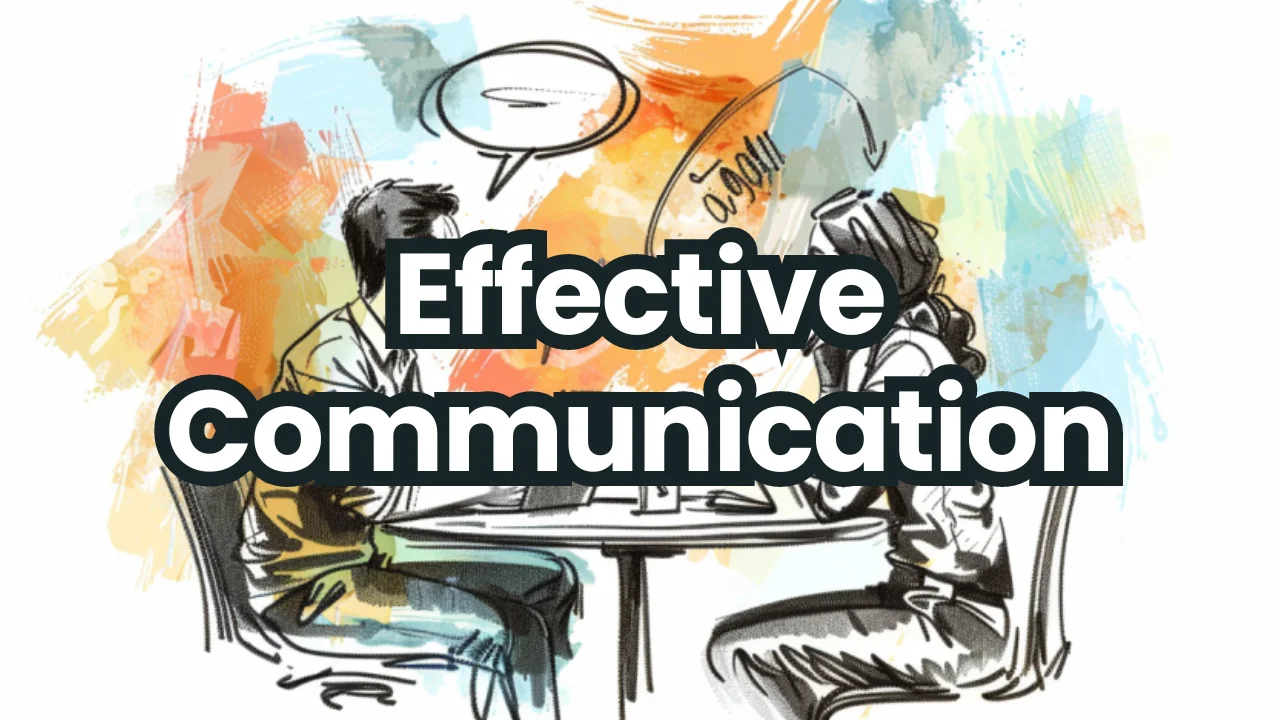Mastering practical communication skills is essential in today’s world. Effective communication involves active listening, clear articulation, empathy, and adaptability across various platforms, including digital mediums. These skills foster better relationships, enhance teamwork, and improve problem-solving abilities, making them crucial for personal and professional success in an increasingly connected society.
Introduction
In today’s fast-paced and interconnected world, communicating effectively is more critical than ever. Whether you’re navigating personal relationships, advancing your career, or simply trying to express yourself clearly, communication skills are foundational to success and fulfillment. Earning a bachelor’s degree in communication can significantly enhance these essential skills, providing a solid foundation for various career paths. Communication is a multifaceted talent that affects all parts of our lives since it involves speaking, listening, interpreting, and comprehending subtleties.
Moreover, good communication skills are relevant to almost any field, including business, healthcare, education, and technology. As the world continues to grow more interconnected, the ability to communicate across cultures and digital platforms is becoming even more necessary. This skill set allows individuals to break down barriers, build meaningful connections, and contribute substantially to their respective fields. Solid communication skills empower individuals to navigate complex environments and achieve their goals effectively.
Why Communication Skills Are Important
Effective communication facilitates building trust, resolving disputes, and ensuring that information is correctly communicated and understood. According to Forbes, effective communication is essential to employee engagement and overall organizational success. By mastering these skills, individuals can foster better workplace environments, enhance team collaboration, and achieve personal goals more efficiently. Companies with solid communication practices are more likely to meet project goals, avoid misunderstandings, and create a more inclusive culture.
Additionally, effective communication extends beyond the workplace. In personal relationships, transparent and empathetic communication can prevent misunderstandings and conflicts. Whether talking to family, friends, or colleagues, being able to express thoughts and feelings appropriately can lead to deeper, more meaningful connections. In community relations, communication skills enable people to stand up for others and themselves in various social contexts.
Critical Elements of Effective Communication
- Clarity: Ensuring your message is straightforward to understand. Miscommunication often arises from ambiguous or convoluted messages, making clarity vital to effective communication.
- Listening: It’s equally vital to listen to people actively as it is to speak. Good communication is a two-way street; listening helps you better understand the other person’s perspective.
- Empathy: Communication barriers can be closed by discussing and understanding one another’s emotions. Empathy allows us to connect more deeply and fosters trust and mutual respect.
- Feedback: Providing and receiving feedback can improve communication flows and comprehension. Constructive feedback helps individuals improve, while open channels for receiving feedback encourage continuous learning and adaptation.
Common Barriers to Communication
Despite our best efforts, communication can sometimes break down. Common barriers include language differences, cultural misunderstandings, and emotional barriers. It’s critical to identify these challenges and devise solutions for them. For instance, language barriers can be mitigated by learning new languages or using translation tools, whereas emotional barriers may require more empathetic listening and open dialogues.
Technical issues can also hinder effective communication, particularly in remote or virtual environments. Online connections, outdated software, or the lack of face-to-face interaction can all contribute to misunderstandings. Identifying and addressing these barriers is crucial for maintaining clarity and efficiency in communication. Taking steps like learning about different cultural etiquettes or investing in reliable communication tools can go a long way in overcoming these barriers.
Tips for Improving Your Communication Skills
Improving your communication skills takes time; progress can be made with practice. Here are some tips:
- Practice active listening. Instead of thinking about what you’ll say next, focus entirely on the speaker’s words.
- Be concise and transparent in your messages. Avoid jargon or overly complex language that might confuse the listener.
- Work on your non-verbal communication, such as body language and eye contact. These often convey more than spoken words.
- Ask for input and keep an open mind to helpful criticism. Seek dependable friends or coworkers for their frank opinions on your communication style.
- Read extensively to improve your vocabulary and expression. The more you read, the better you’ll be able to articulate your thoughts clearly and effectively.
Additionally, practicing empathy and emotional intelligence can significantly enhance the quality of your communications. Understanding the emotional dynamics in conversations can help you respond more appropriately and maintain a positive rapport with others. Courses or participating in workshops can also provide structured learning opportunities to develop these crucial skills.
The Role of Technology in Modern Communication
Technology has transformed how we communicate, making it faster and more efficient and creating new challenges. Video conferencing tools, instant messaging, and social media platforms play significant roles today. According to Pew Research, digital communication tools have both improved and complicated interpersonal interactions. While these tools offer convenience, they can also lead to misunderstandings due to the need for non-verbal cues.
Moreover, the rise of remote work has greatly emphasized digital communication skills. Writing explicit emails, using collaboration tools effectively, and managing virtual meetings are now essential skills in many professions. While technology can bridge geographical gaps, it also requires us to adapt and learn new communication methods to maintain efficiency and effectiveness.
Final Thoughts
Gaining communication skills is a lifetime endeavor that benefits all facets of life. Consistently working on these skills can lead to more meaningful interactions, better relationships, and tremendous professional success. Remember, the key is practice, patience, and a willingness to learn and adapt. The effort invested in improving your communication prowess will undeniably lead to a more enriched and successful life, personally and professionally.




